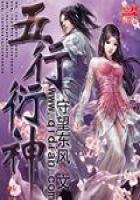If you are now satisfied that The Rhine Gold is an allegory, do not forget that an allegory is never quite consistent except when it is written by someone without dramatic faculty, in which case it is unreadable.There is only one way of dramatizing an idea;and that is by puttmg on the stage a human being possessed by that idea, yet none the less a human being with all the human impulses which make him akin and therefore interesting to us.
Bunyan, in his Pilgrim's Progress, does not, like his unread imitators, attempt to personify Christianity and Valour: he dramatizes for you the life of the Christian and the Valiant Man.
Just so, though I have shown that Wotan is Godhead and Kingship, and Loki Logic and Imagination without living Will (Brain without Heart, to put it vulgarly); yet in the drama Wotan is a religiously moral man, and Loki a witty, ingenious, imaginative and cynical one.As to Fricka, who stands for State Law, she does not assume her allegorical character in The Rhine Gold at all, but is simply Wotan's wife and Freia's sister: nay, she contradicts her allegorical self by conniving at all Wotan's rogueries.That, of course, is just what State Law would do; but we must not save the credit of the allegory by a quip.Not until she reappears in the next play (The Valkyries) does her function in the allegorical scheme become plain.
One preconception will bewilder the spectator hopelessly unless he has been warned against it or is naturally free from it.In the old-fashioned orders of creation, the supernatural personages are invariably conceived as greater than man, for good or evil.
In the modern humanitarian order as adopted by Wagner, Man is the highest.In The Rhine Gold, it is pretended that there are as yet no men on the earth.There are dwarfs, giants, and gods.The danger is that you will jump to the conclusion that the gods, at least, are a higher order than the human order.On the contrary, the world is waiting for Man to redeem it from the lame and cramped government of the gods.Once grasp that; and the allegory becomes ****** enough.Really, of course, the dwarfs, giants, and gods are dramatizations of the three main orders of men: to wit, the instinctive, predatory, lustful, greedy people; the patient, toiling, stupid, respectful, money-worshipping people; and the intellectual, moral, talented people who devise and administer States and Churches.History shows us only one order higher than the highest of these: namely, the order of Heroes.
Now it is quite clear--though you have perhaps never thought of it--that if the next generation of Englishmen consisted wholly of Julius Caesars, all our political, ecclesiastical, and moral institutions would vanish, and the less perishable of their appurtenances be classed with Stonehenge and the cromlechs and round towers as inexplicable relics of a bygone social order.
Julius Caesars would no more trouble themselves about such contrivances as our codes and churches than a fellow of the Royal Society will touch his hat to the squire and listen to the village curate's sermons.This is precisely what must happen some day if life continues thrusting towards higher and higher organization as it has hitherto done.As most of our English professional men are to Australian bushmen, so, we must suppose, will the average man of some future day be to Julius Caesar.Let any man of middle age, pondering this prospect consider what has happened within a single generation to the articles of faith his father regarded as eternal nay, to the very scepticisms and blasphemies of his youth (Bishop Colenso's criticism of the Pentateuch, for example!); and he will begin to realize how much of our barbarous Theology and Law the man of the future will do without.Bakoonin, the Dresden revolutionary leader with whom Wagner went out in 1849, put forward later on a program, often quoted with foolish horror, for the abolition of all institutions, religious, political, juridical, financial, legal, academic, and so on, so as to leave the will of man free to find its own way.All the loftiest spirits of that time were burning to raise Man up, to give him self-respect, to shake him out of his habit of grovelling before the ideals created by his own imagination, of attributmg the good that sprang from the ceaseless energy of the life within himself to some superior power in the clouds, and of ****** a fetish of self-sacrifice to justify his own cowardice.
Farther on in The Ring we shall see the Hero arrive and make an end of dwarfs, giants, and gods.Meanwhile, let us not forget that godhood means to Wagner infirmity and compromise, and manhood strength and integrity.Above all, we must understand--for it is the key to much that we are to see--that the god, since his desire is toward a higher and fuller life, must long in his inmost soul for the advent of that greater power whose first work, though this he does not see as yet, must be his own undoing.
In the midst of all these far-reaching ideas, it is amusing to find Wagner still full of his ingrained theatrical professionalism, and introducing effects which now seem old-fashioned and stagey with as much energy and earnestness as if they were his loftiest inspirations.When Wotan wrests the ring from Alberic, the dwarf delivers a lurid and bloodcurdling stage curse, calling down on its every future possessor care, fear, and death.The musical phrase accompanying this outburst was a veritable harmonic and melodic bogey to mid-century ears, though time has now robbed it of its terrors.It sounds again when Fafnir slays Fasolt, and on every subsequent occasion when the ring brings death to its holder.This episode must justify itself purely as a piece of stage sensationalism.On deeper ground it is superfluous and confusing, as the ruin to which the pursuit of riches leads needs no curse to explain it; nor is there any sense in investing Alberic with providential powers in the matter.















